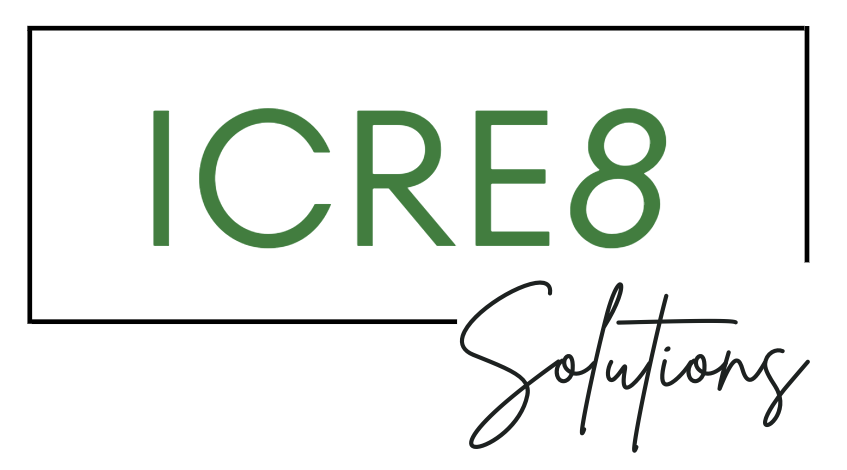Whether you sell stickers or hand-knit socks, choosing an ecommerce platform that meets all of your small business needs is imperative. The good news is you have plenty to choose from, including Etsy, Shopify, WooCommerce, Square, and Red Bubble, among so many others.
The bad news is you have too many to choose from. I mean, where do you even begin? How are you supposed to know which ecommerce platform makes the most sense for you?
First, Let’s Self-Assess
To put the pros and cons of each platform into context, take a step back and think about where you are in your small business journey right now. Consider the following while reviewing your options:
- Are you looking to sell physical products or downloadable products?
- Do you manufacture and store your products, or are you looking to outsource manufacturing and storage?
- How much traffic and revenue does your business currently generate or expect to generate?
- How much flexibility and control do you desire over the design of your website?
- Do you have prior web development and/or WordPress experience?
Selling on Etsy
- Sign Up Cost: Free*
- There is a “premium” plan available for $10/month
- Listing Fees: $0.20/item
- Transaction Fees: 6.5%
- Payment Processing Fees: 3% + 0.25%
Ah, yes, Etsy. A tried-and-true small business haven for full-time artists and hobbyist crafters alike. Etsy is like a wholesome eBay full of hand-made trinkets you never knew you needed. It is the foundation upon which many artists begin and grow their businesses.
Etsy makes the most sense for small business owners who:
- Have physical products they’re shipping from home or their workspace
- Are just starting out and need a quick, easy, user-friendly platform to get started on
- Are beginning to build a small, dedicated following of potential customers on social media
- Have a small inventory of products / just a handful of listings
Etsy — The Pros & Cons
| Pros | Cons |
|---|---|
| Very user-friendly and easy to navigat | Lack of customization options for your storefront |
| No web-development experience needed | You have to use an Etsy domain instead of a personal domain (though you can set up a domain redirect) |
| Easy to create shipping labels directly within your shop | High transaction and payment processing fees in addition to listing fees for each item |
| You can attain customers through the Etsy search rather than relying solely on direct visits from social media or Google | Hard to “breakthrough” the first few pages of the search with your listings because there are so many artists (and drop shippers) on the platform |
Selling on Shopify
- Sign Up Cost: $39-$2,000/month*
- Shopify does offer a free three-day trial.
- There is also a $1/month plan for selling products through “messages and social media platforms”
- Listing Fees: N/A
- Payment Processing / Transaction Fees: 2.4% + $0.30 to 2.9% + $0.30
Shopify is one of the largest eCommerce platforms, touting a variety of large brands from all around the globe that use it. While Shopify gets a lot of notoriety, its pricing is pretty steep for small businesses.
And these are just the costs to get your Shopify started — not to mention any premium plug-ins you might have to purchase for your storefront.
Shopify makes the most sense for small businesses that:
- Already have a larger following and are generating ample revenue
- Those who have a little bit of web development experience under their belt and feel comfortable building their own website
Shopify — The Pros & Cons
| Pros | Cons |
|---|---|
| Some customization and flexibility over the appearance of your website | Some functionality (i.e., the blog post creation functionality) is outdated and not very user-friendly. |
| Tons of different integration options via plug-ins | Many plug-ins cost additional money |
| No listing fees | High monthly fees |
| Point-of-sale solutions for in-person vending | The Shopify POS Pro plan is an additional $89/month |
Selling on WooCommerce
- Sign Up Cost: Free*
- WooCommerce is free, but you’ll need WordPress and website hosting to get started.
- Listing Fees: N/A
- Payment Processing / Transaction Fees: 2.9% + $0.30*
- Transaction fees will vary based on what country your business is based out of.
WooCommerce is yet another massive ecommerce platform used by tons of companies, big and small, worldwide. It is the perfect solution if you already have a WordPress website or were leaning towards using WordPress for your business, anyways.
While WooCommerce itself is free, there are tons of WooCommerce plug-ins, some of which are free and some of which are not. You also have to consider the server hosting fees you’ll need to pay to launch your website.
WooCommerce makes sense for small businesses that:
- Already have a WordPress website or a preference for using WordPress
- Are either just starting out or already have a large following
- Want the most control over their website’s appearance and functionality
- Are selling physical or digital products online
WooCommerce — The Pros & Cons
| Pros | Cons |
|---|---|
| Has the most customization and flexibility over your website’s appearance because it’s built into WordPress. | Requires some knowledge or experience using WordPress — which can be very intimidating if you’ve never built a website before. |
| Completely free and open-source software | Have to pay for a website server, domain, and any plug-ins you may need for your small business |
| Can create categories and subcategories for your product | No free POS system for in-person transactions |
| There’s a large community that uses WooCommerce, so if you have any questions, they’re probably already answered online |
Selling on Square
- Sign Up Cost: Free*
- Square does have premium plan options, but all of the essential features you need to get started are free
- Listing Fees: N/A
- Payment Processing / Transaction Fees: 2.6% + $0.10 to 3.5% + $0.10
You ever see one of those little white, square-shaped credit card readers hanging out of someone’s phone at a craft show? Yup — that’s a Square Reader. Square is perhaps one of the best-kept secrets among small businesses. It is a phenomenal, versatile platform for both in-person and ecommerce sales.
Square makes sense for small businesses that:
- Have physical products on hand to ship
- Want the ability to sell in-person and online with seamless inventory tracking
- Are just getting started or already have a small to large customer base
- Are looking for an easy and user-friendly solution that requires little to no web development experience but still gives them more control over their website
- Small businesses that need an invoicing or appointment booking system in addition to a storefront
Square — The Pros and Cons
| Pros | Cons |
|---|---|
| Very user-friendly and easy to navigate | There are a lot of tools at your disposal, so it can take a minute to get familiar with where everything is in Square |
| Little to no web-development experience needed | Drag-and-drop website builders are great, but sometimes not as customizable as one might desire |
| Free to get started | You have to use a Square domain with the free plan. However, you can purchase a domain from another platform and set up a domain redirect |
| Easy to create shipping labels directly within your shop | Lack of SEO functionality (especially in comparison to WordPress) |
| The ability to sell products on your website or in-person using literally just your phone and the Square Reader (which ranges from free to $10) | Sometimes the inventory management system can glitch or be a bit finicky when creating listings in your item library and waiting for them to auto-sync to your website listings |
| Ability to create categories, subcategories, sales, coupons, receipts, invoices, etc… |
Selling on RedBubble
- Sign Up Cost: Free
- Listing Fees: N/A
RedBubble is an online marketplace that specializes in print-on-demand services. Got a design but no Cricut at home? Have no fear, RedBubble is here. And not only can you turn that design into a sticker — shoot, RedBubble will even turn it into a mug, a pillow, and a blanket for you!
How does it work? Well, you create your design, upload it to RedBubble, then set your markup fee. All RedBubble products have a base price. This base price is RedBubble’s cut, which covers hosting the marketplace and manufacturing the product.
Besides that, RedBubble is free and easy to use. This platform makes sense for small businesses that:
- Are just starting out and have a small, dedicated online following
- Have tons of designs but no time or ability to manufacture physical products
- Are looking for an easy print-on-demand solution that won’t cost them anything out-of-pocket
RedBubble — The Pros and Cons
| Pros | Cons |
|---|---|
| Completely free to get started | You will only receive the “artist markup” portion of the profits |
| No web development experience needed, and very user-friendly | Minimal customization over your storefront. You will also have to use a RedBubble domain (again — a domain redirect can help you get around this) |
| Print-on-demand services | You can’t sell any physical products you have manufactured yourself |
| Huge marketplace where your products can get discovered by other users on RedBubble | Again, it can be hard to break through the first few pages of listings because so many artists use RedBubble |
Conclusion

Starting an ecommerce business takes a village. And by a village, we mean you, a cup of coffee, and plenty of 3am research. At the end of the day, there’s no one-size-fits-all solution for launching your first ecommerce store.
Fortunately, we create solutions (it’s literally in our name) for all businesses. Whether you’re an entrepreneur, a small business owner, or a large enterprise, iCre8Solutions is here to help you maximize your venture.
If you’re still not sure which ecommerce platform makes the most sense for you — or you need help building your website — we’re here to help. Contact us to learn more about our business, financial, and website development consulting services.

